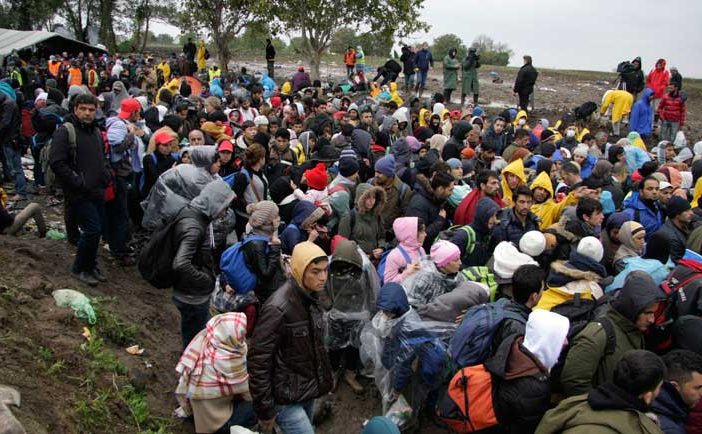Of late, the chattering classes have been obsessed with the plight of the insurgent Muslim Rohingya in the Union of Myanmar (colloquially known by its former name “Burma”). Mainstream media outlets portray the Rohingya as the blameless victims of racism, religious discrimination and political oppression. Largely in response to this outcry from the cultural elite, President Trump has directed the Department of State to take punitive action against the Burmese government.Ever eager to aid the subjugated, the Department of Homeland Security (DHS) has already accepted
Rohingya refugees. And Congress has provided $32 million to aid internally displaced tribesmen, as well as those who have fled to nearby Bangladesh. Calls for the U.S. to grant even more Rohingya refugee status are sure to follow.
But, in this rush to protect the downtrodden, has the U.S. ignored warning signs? If so, might we inadvertently give our enemies a low-scrutiny path into the United States? While there is no doubt that Burma is currently ruled by a military junta with little respect for human rights, the nature of Rohingya insurgent groups is far from clear.
The most prominent of these groups is the Arakan Rohingya Salvation Army (ARSA). In the West, ARSA is commonly portrayed as a self-help organization formed to defend Muslims against religious persecution by Burmese security forces. However, the group was founded by Ata Ullah, a Rohingyan expatriate with extensive connections to extremist organizations in Saudi Arabia.
As far back as 2005, the Congressional Research Service was questioning whether the Rohingya Solidarity Organization (RSO), a militant group allied with ARSA, was being funded by Jihadist groups. In addition, Robert Spencer of Jihad Watch, has pointed out that there are numerous news accounts of Rohingya violence against other Burmese religious groups.
The Rohingya situation highlights the shortcomings of the current vetting procedures used by the Department of Homeland Security. Successful vetting is dependent upon access to verifiable information. Problems arise when attempting to vet people who come from countries where there are few reliable public records or countries that are unwilling to share information.
The Rohingya are a rural people, without an established record-keeping tradition, who live in an isolationist state that does not share data with the outside world. As such, U.S. Citizenship and Immigration Services (USCIS) and the U.S. Department of State (DOS) simply don’t have enough reliable intelligence to determine who among the Rohingya may be legitimate candidates for refugee status and who may be terrorists.
Too often the United States is willing to give refuge to those who claim to be oppressed without really understanding who they are and what they’ve been up to. Yet, terrorists have already infiltrated refugee groups in order to gain access to the West. This time, we should find out exactly who we are dealing with before we decide to welcome large numbers of them with open arms.





2 Comments
Because it gets cheap labor for the gop donors.
Don’t forget that Hillary promised she was going to greatly expand entry by Muslim “refugees” into this country. The main problem is the numbers become an end goal in themselves, even though, as pointed out, there is no way that the backgrounds of these people can be checked. It becomes a matter of rubberstamping. Studies done by the Ford Foundation of those amnestied in 1986 found that a significant percentage simply lied on their applications and were ineligible. And that was already people IN this country for years.
There was an item buried in the news the other day about the Mexican state of Guerrero and the fact that “100 schools around the town of Chilapa were forced to close due to gang threats” and “two drug gangs have been fighting in the area.” This is why we need a wall besides all the other enforcement measures. Cartel gangs, which have already become established in some of our border states, don’t worry about e-verify. They’re criminals. We have every right to keep this from spilling over into this country and Mexico should want a wall too. The fact that they don’t shows that the cartels run the show in that country.
Some are now saying that we don’t need a wall because numbers have dropped because of Trump policies. And the minute a Democrat gets back in office the floodgates will open again. A wall is permanent, politicians are not.
We know why the Democrats want open border and amnesty policies. They get the votes. So why do so many Republicans support the amnesties that will make even more overwhelmingly Democratic voters. And it’s not just the 800,000 DACA people. A couple Republicans have introduced bills that will amnesty millions more than that, without even addressing enforcement. If there is a dime’s worth of difference between John McCain, Lindsey Graham, and Chuck Schumer on amnesty I haven’t seen it.